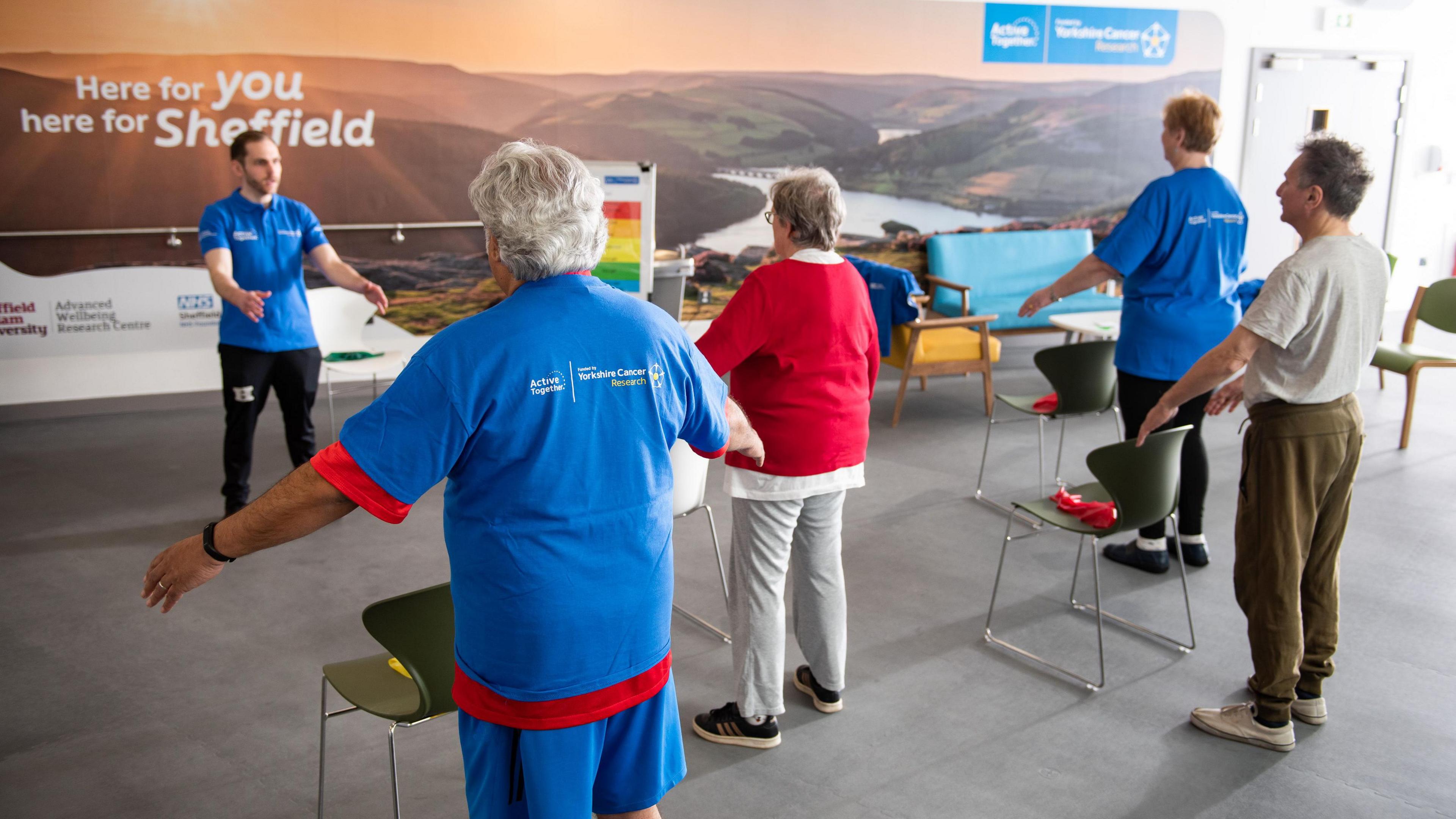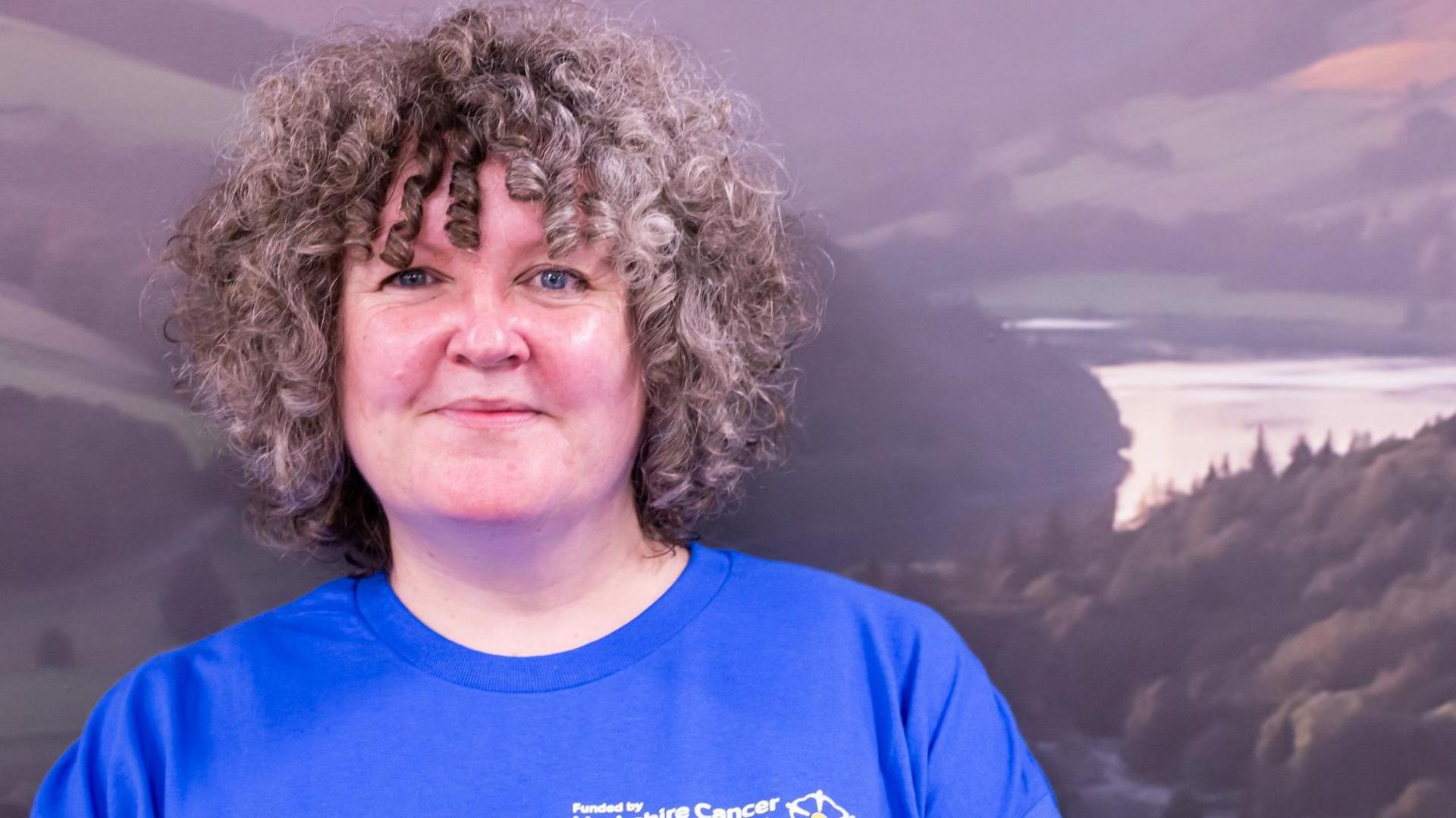Exercise scheme improved cancer outcomes - report

Patients took part in regular exercise before, during and after their cancer treatment as well as being provided with nutritional and psychological support
- Published
Cancer patients who took part in a "pioneering programme" offering free exercise and nutrition advice had improved survival rates, according to a report.
Those participating in the Active Together programme, led by Sheffield Hallam University, had one-year survival rates of 95% compared to 85% for those who did not take part.
Patients took part in regular exercise before, during and after their cancer treatment as well as being provided with nutritional and psychological support.
Academics and clinicians said the programme also "demonstrated substantial cost savings to the NHS".
The programme was developed by the university's Advanced Wellbeing Research Centre (AWRC) and involved patients with colorectal, lung and upper gastrointestinal cancers.
The university's report said with further funding from Yorkshire Cancer Research, the programme was being expanded across Yorkshire.

Karen Nile said the Active Together programme team held her hand right from the beginning of her cancer journey
Karen Nile, 50, from Sheffield, was diagnosed with bowel cancer in March 2023.
She said within days of her diagnosis she was referred to the scheme to prepare for major surgery, which included having two stomas fitted.
She said: "They prescribed specific walking speeds and provided nutritional guidance to ensure I was as strong as possible before surgery.
"Afterwards, they provided specialised exercise booklets designed specifically for people with stomas - seeing the exercises demonstrated by people who had stomas themselves made them so much more relevant to my situation and, most importantly, achievable."
Dr Stuart Griffiths, director of research and services at Yorkshire Cancer Research, said as a result of the programme's approach, patients were able to tolerate greater doses of treatment and recover better after operations.
He added: "With plans for further expansion across the region well under way, the charity’s long-term aim is for everyone in Yorkshire to have access to this pioneering treatment, no matter who they are or where they live.”
Prof Robert Copeland, AWRC director, said the programme fitted with central government's drive to move NHS treatment to the community, and said they would "embrace the opportunity" to roll it out nationally.